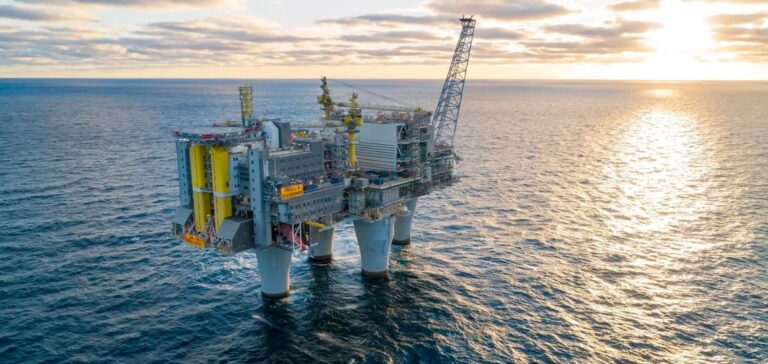Norwegian energy giant Equinor announced on Friday that it has entered into a long-term agreement with Polish gas company PGNiG to supply Norwegian gas to Poland via a pipeline about to be inaugurated.
Under the terms of the agreement, Equinor will deliver to PGNiG, via the Baltic Pipe pipeline, approximately 2.4 billion cubic meters of gas per year for a period of ten years, equivalent to 15% of Poland’s annual consumption.
With a capacity of 10 billion m3 per year, Baltic Pipe will be inaugurated on Tuesday. As it is in fact a connection, via Denmark, to Europipe II, a gas pipeline that already links Norway and Germany, its commissioning will not lead to an increase in Norwegian gas deliveries to Europe.
Poland is seeking to reduce its dependence on Russian gas, which covered two-thirds of its needs a few years ago. Against the backdrop of the war in Ukraine, Russian giant Gazprom has suspended deliveries to the country this year, as PGNiG refused to pay its bill in rubles.
The new contract with Equinor will run from January 1, 2023 to January 1, 2033. This “will result in a significant strengthening of our country’s energy security,” commented PGNiG’s CEO Iwona Waksmundzka-Olejniczak, quoted in a joint statement.
Polish Prime Minister Mateusz Morawiecki visited Oslo in March to develop energy cooperation between the two countries.
Two months later, Mr. Morawiecki had called on the Norwegians to “share these exceptional benefits”, pointing to “an indirect predation of the war unleashed by Putin”.
The gas will be delivered “at market price”, said Friday to AFP a spokesman for Equinor Magnus Frantzen Eidsvold.
Faced with soaring energy bills, several European Union (EU) member states are calling for a cap on the price of imported gas.
Regarding this proposal, Norway, which has become Europe’s leading gas supplier after the reduction in Russian deliveries, says it is “sceptical”.
Oslo is passing the buck to the oil companies and their customers in Europe, suggesting that long-term supply contracts, with fixed prices and therefore greater visibility, which Europeans have shunned since the turn of the millennium, should be negotiated rather than spot contracts, whose prices can vary enormously.





















